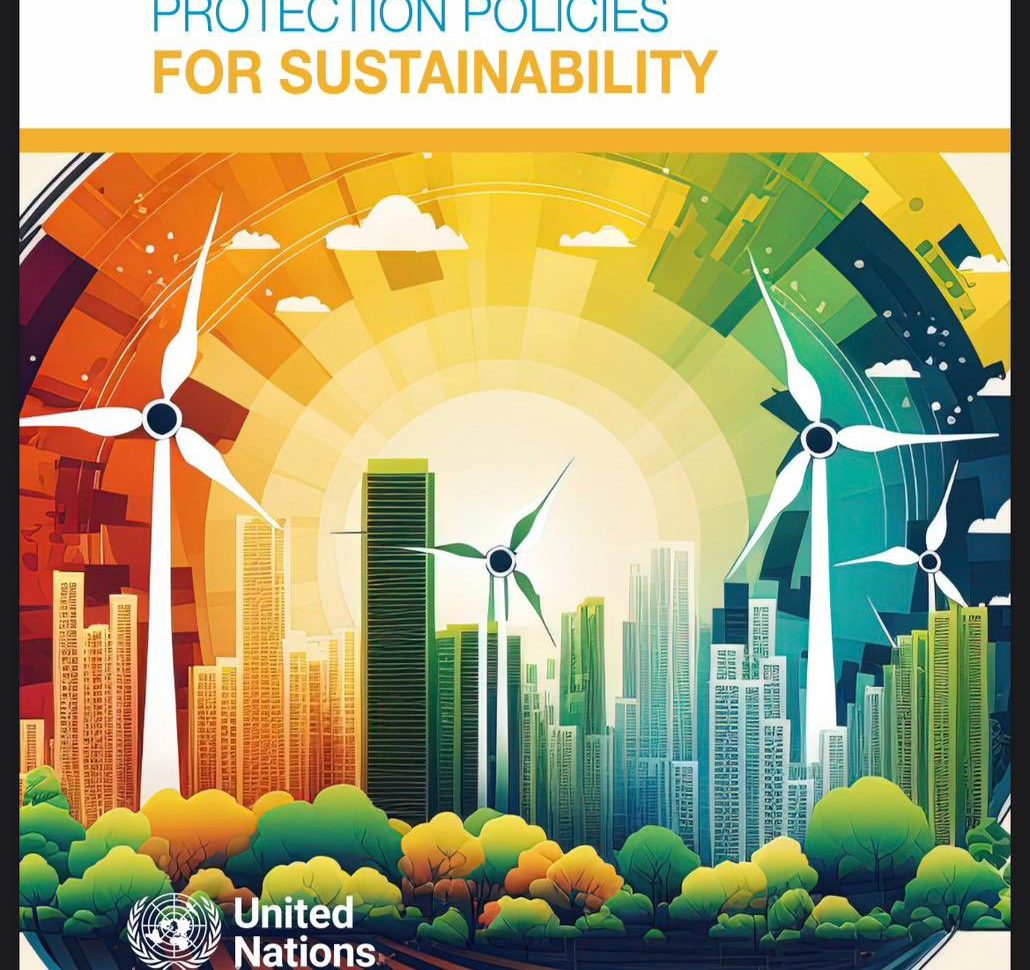
5 Steps to Build an Effective CSR Strategy
In today’s business landscape, Corporate Social Responsibility (CSR) has evolved from being a “nice-to-have” to ...

A new report issued by the United Nations Conference on Trade and Development (UNCTAD) in May 2023 highlighted Egypt’s “no more plastic bags” initiative as among three examples of national and international initiatives that contributed to consumer education on sustainable consumption.
In 2017, Egypt’s Ministry of Environment launched a national initiative on the reduction of plastic bag consumption, under the slogan “no more plastic bags”.
The Ministry played a major role in mobilization and awareness in Egypt, to contribute to reducing the environmental impact of single-use plastic bags. The campaign also targeted women, as they play a pivotal role in the education of families, friends and the greater community with regard to the risks of using non-recyclable plastic bags.
As shown in the UNCTAD world consumer protection map, 37 of 104 respondents to an UNCTAD questionnaire have consumer education initiatives related to sustainable consumption.
The new UNCTAD report – under the title of “Competition and Consumer Protection Policies for Sustainability” – the interplay between competition and consumer protection policies and sustainability.
Education material on sustainable consumption developed by Sweden’s Consumer Agency was the second initiative selected in this regard in the UNCTAD report.
The educational material on sustainable consumption, “Sustainable, of course!”, consists of 24 lessons for use in secondary schools, including videos and quizzes on how to become a conscious consumer and take care of the planet by shopping smart, eating in an environmentally friendly way, keeping track of money and submitting complaints about a purchase if needed.
The third exemplary initiative was “Eco schools” that were developed as a response to needs identified at the United Nations Conference on Environment and Development held in 1992 and were launched in 1994 in Denmark, Germany, Greece and the United Kingdom by the Foundation for Environmental Education.
At present, 19 million students worldwide are participating in the program, the main goal of which is for schools to gradually integrate a sustainable development dynamic or education on sustainable development, whereby students can acquire the necessary knowledge, skills and motivation to address related challenges and help shape sustainable development.
Concerning consumer education and information, the United Nations guidelines for consumer protection states that national consumer protection policies should encourage consumer education. Member States are encouraged to promote programs related to consumer education and information, including coverage of aspects such as product labeling, environmental protection and the efficient use of materials, energy and water.
In addition, with regard to the promotion of sustainable consumption, the guidelines state that Member States should develop and implement information programs to raise awareness of the impact of consumption patterns. Education and awareness initiatives that inform consumers, citizens and businesses of the importance of preserving the environment are crucial in both developed and developing countries.
The United Nations One Planet Network, involving Member States and interested stakeholders, including businesses and consumer groups and associations, is an initiative led by the United Nations Environment Program that promotes tools or systems that guide consumers in making more sustainable choices about goods and services, including at the use and end-of-life stages.
The tools take many forms, from labels on products to advertising, marketing and awareness-raising campaigns and communications between peers through social media or family and friend networks, as well as voluntary standards, ratings, marketing claims, life cycle assessments and other ways of communicating with consumers about environmental and social issues connected with products; and the tools may focus on a single issue or follow a life cycle approach, considering the impact of each stage of the product development process, including how a product is used and how it is treated responsibly at the end-of-life stage.
Different groups of consumers have different consumption patterns, and member States should employ different strategies and tools among each targeted group, and also account for consumer behavior biases. For example, crumpled, folded or torn paper can still be recycled, yet consumers may tend to recycle mostly intact paper; and consumers may be encouraged to behave in a more sustainable way if their commitments to eco-friendly behavior are made public, such as by asking hotel guests to signal that they agree to reuse towels by hanging a card on their room door, which can increase towel reuse by 20 percent.
The “intention-action gap” refers to the discrepancy between what consumers say they will do for sustainability and their actual behavior, which may be less sustainable. Some studies confirm this gap, yet data on consumer sentiment and behavior with regard to sustainable consumption remains scarce and lacks comparability worldwide.
As noted by the European Commission Competence Center on Behavioral Insights, behavioral insights can be used to help ensure that environmental labels to effectively nudge consumers towards making greener consumption choices.
اترك تعليقا